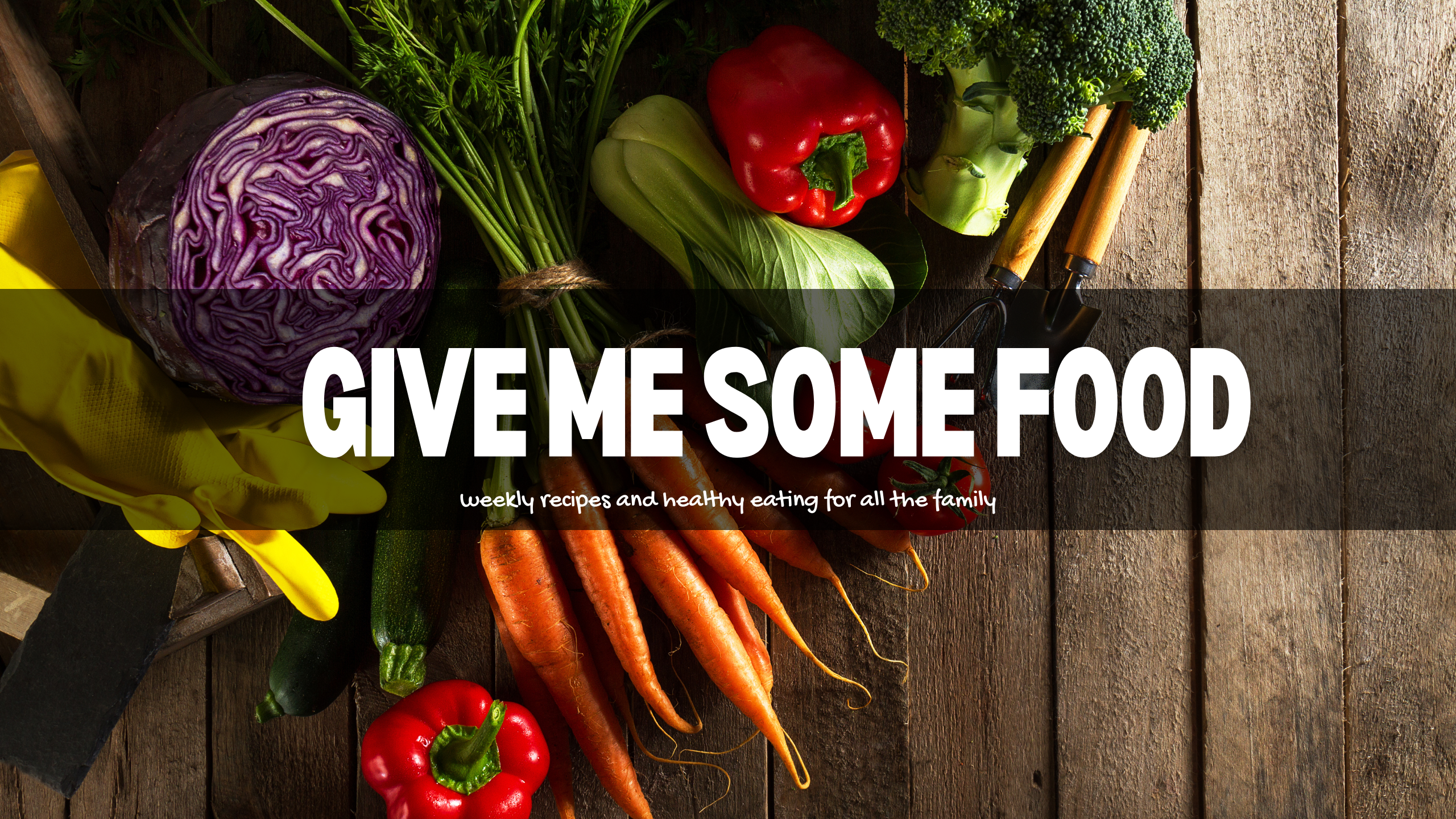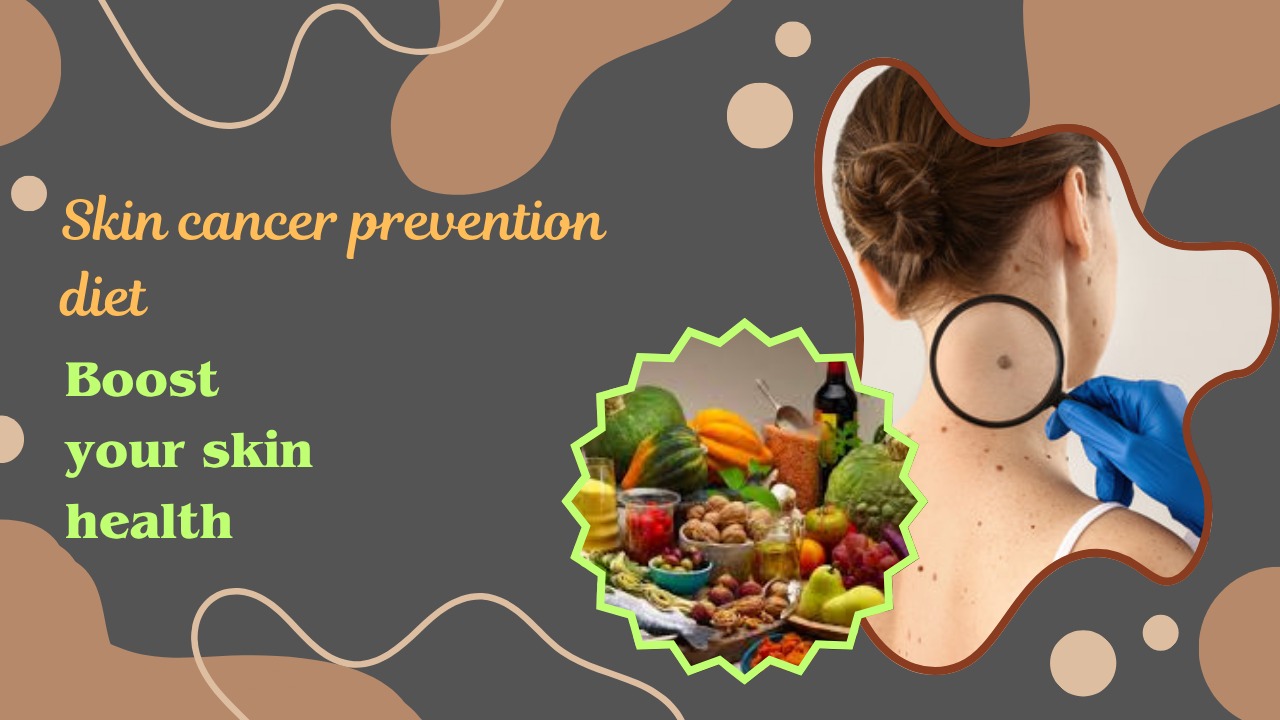Skin cancer is one of the most common cancers worldwide, with cases steadily increasing. While protecting your skin with sunscreen, seeking shade, and scheduling regular skin exams are essential, adopting a skin cancer prevention diet can also help reduce your risk. This diet focuses on consuming foods rich in antioxidants, vitamins, and minerals that support skin health and defend against UV damage.
A well-rounded skin cancer prevention diet includes plenty of colorful fruits and vegetables, such as berries, leafy greens, and carrots, which contain antioxidants like vitamins C and E. These nutrients help neutralize free radicals caused by sun exposure, reducing cellular damage that can lead to cancer. Healthy fats from sources like olive oil and fatty fish also promote skin repair and hydration.
Incorporating a skin cancer prevention diet into your lifestyle adds an extra layer of defense. Combined with proper sun safety habits, this nutritional approach supports your skin’s natural resilience and overall health, helping you protect yourself from skin cancer in the long run.
In this article, we’ll dive deep into the role of diet in skin cancer prevention, discuss the top foods and nutrients that support skin health, and provide you with practical and effective tips to incorporate into your daily meals. These tips, backed by science, will help you nourish your skin from the inside out and decrease the chances of skin cancer.
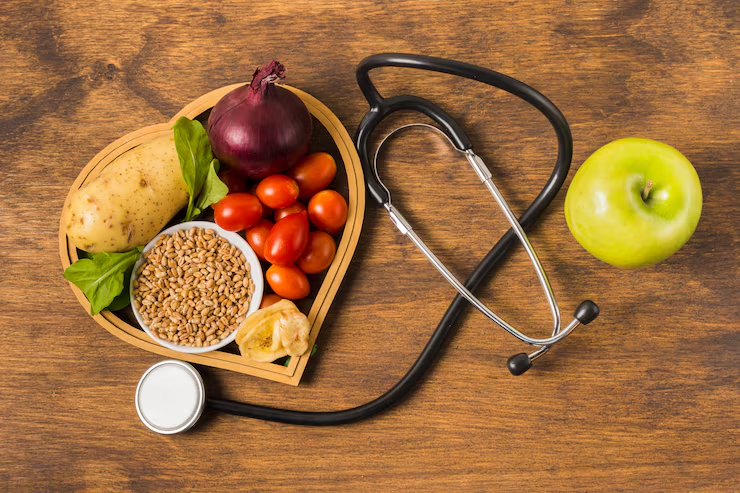
Understanding Skin Cancer and Its Causes
Before delving into the specifics of a diet for skin cancer prevention, it’s important to understand what skin cancer is and what factors contribute to its development.
Skin cancer occurs when skin cells grow abnormally and uncontrollably, often as a result of damage from ultraviolet (UV) radiation. UV rays, which are emitted by the sun, cause DNA mutations in skin cells, which can lead to the formation of tumors. The three most common types of skin cancer are:
Basal Cell Carcinoma (BCC)
Squamous Cell Carcinoma (SCC)
Melanoma (the most dangerous form)
Though exposure to UV radiation is the primary cause, other risk factors include:
Genetics: A family history of skin cancer increases the risk.
Skin Type: Fairer skin, which produces less melanin, is more susceptible to UV damage.
Age and Gender: Older adults, especially men, tend to be at higher risk.
Immune System: A weakened immune system may make the body more prone to cancer development.
How Your Diet Can Help Protect Against Skin Cancer
A healthy and balanced diet supports your skin’s natural defenses and helps keep it strong. While no food alone can completely shield you from skin cancer, certain nutrients work together to keep your skin cells healthy and resilient. That’s where the skin cancer prevention diet comes in.
This type of diet includes a variety of antioxidant-rich foods like berries, leafy greens, and colorful vegetables. These antioxidants help reduce oxidative stress and support cell repair, which is important for skin health. Foods with vitamins A, C, and E, as well as zinc and selenium, help protect the skin from everyday damage caused by the sun and environment.
Including anti-inflammatory foods such as fatty fish, walnuts, and flaxseeds can also improve skin function. Together, these foods make up a powerful skin cancer prevention diet that supports your body from the inside out and helps your skin function at its best.
Top Skin Cancer Prevention Diet Tips
Consume More Antioxidant-Rich Foods
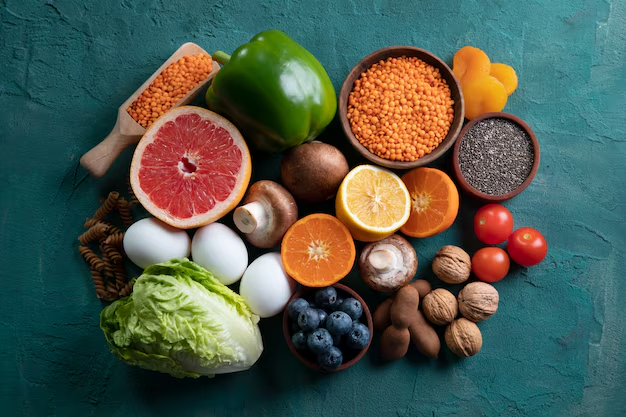
Antioxidants are a powerful ally when it comes to reducing your risk of skin cancer. These compounds work by neutralizing free radicals—unstable molecules that can damage your cells and DNA, ultimately contributing to the development of various cancers, including skin cancer. Incorporating a wide variety of antioxidant-rich foods into your daily meals can offer natural protection.
Berries, leafy greens, tomatoes, and colorful vegetables are some of the top sources of antioxidants. These foods contain vitamins A, C, and E, along with other plant compounds that help strengthen your skin’s defenses against UV radiation. Regularly consuming these foods supports healthy skin regeneration and reduces inflammation caused by sun exposure.
A well-balanced skin cancer prevention diet that includes antioxidants can significantly contribute to your overall skin health. While it should not replace sunscreen or other protective habits, this dietary approach offers a simple, natural way to reduce long-term skin damage from within.
Top Antioxidant Foods to Include in Your Diet:
Berries: Blueberries, strawberries, raspberries, and blackberries are packed with antioxidants like anthocyanins, which have anti-inflammatory and anti-cancer properties.
Leafy Greens: Spinach, kale, and Swiss chard are rich in carotenoids and flavonoids, compounds that can help prevent skin cancer.
Nuts: Almonds, walnuts, and pecans are excellent sources of vitamin E, which is a powerful antioxidant for protecting skin cells.
Red and Orange Vegetables
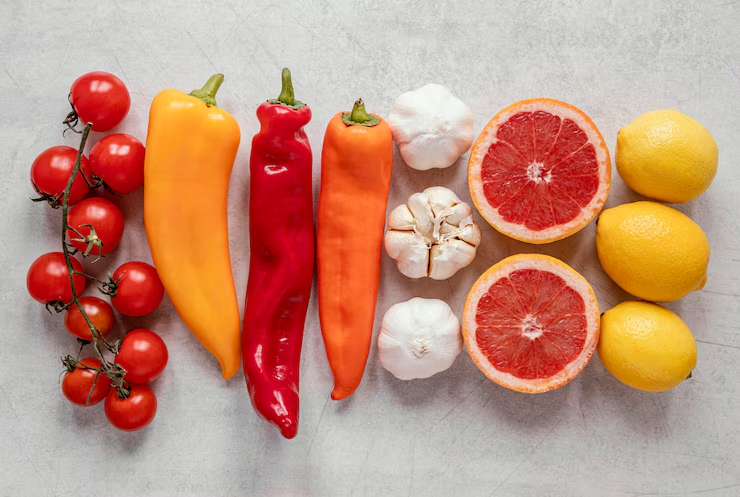
Carrots, bell peppers, and sweet potatoes are vibrant vegetables that pack a powerful nutritional punch—especially when it comes to skin protection. These foods are rich in beta-carotene, a plant pigment that the body converts into vitamin A. This essential vitamin is well-known for promoting healthy skin and supporting the body’s natural defense against UV damage.
Vitamin A helps maintain the integrity of the skin barrier, reducing the risk of cell damage caused by excessive sun exposure. Including beta-carotene-rich foods in your meals regularly can enhance your skin’s resilience and slow down premature aging linked to sun damage.
As part of a balanced skin cancer prevention diet, adding orange and red vegetables can be a delicious and protective choice. While these foods alone can’t prevent skin cancer, they serve as a valuable addition to a lifestyle that includes sun safety habits and regular skin screenings. Prevention starts from the inside out.
Include Omega-3 Fatty Acids in Your Diet
Omega-3 fatty acids are a crucial component of a skin cancer prevention diet due to their strong anti-inflammatory effects. Found in foods like salmon, sardines, flaxseeds, chia seeds, and walnuts, these healthy fats support the skin’s barrier function and help reduce inflammation triggered by UV exposure.
Chronic inflammation can damage skin cells and weaken their defenses against harmful rays, increasing the risk of skin cancer over time. By reducing the production of pro-inflammatory compounds, omega-3s help your skin stay resilient and less prone to damage from environmental stressors like sunlight.
Incorporating omega-3-rich foods into your meals several times a week is a simple yet effective strategy for protecting your skin. Whether through grilled fish, a flaxseed smoothie, or a walnut-topped salad, these sources contribute to overall skin health and can enhance the protective benefits of a skin cancer prevention diet.
Omega-3-Rich Foods to Include:
Fatty Fish: Salmon, mackerel, and sardines are rich in EPA and DHA, which reduce inflammation and protect the skin.
Chia Seeds and Flaxseeds: These plant-based sources are high in ALA (alpha-linolenic acid), another form of omega-3 fatty acid that benefits skin health.
Walnuts: Packed with both omega-3s and antioxidants, walnuts can contribute to a stronger, more resilient skin barrier.
Eat Foods Rich in Vitamin D
Vitamin D is a vital nutrient that supports numerous functions in the body, including maintaining healthy skin. Although it’s well known for its role in bone health, vitamin D also influences immune function and helps regulate the growth and repair of skin cells, which can be critical in preventing abnormal changes linked to skin cancer.
While moderate sun exposure helps the body synthesize vitamin D, relying solely on sunlight isn’t always safe—especially for those concerned about UV damage. That’s where a skin cancer prevention diet comes into play. Foods like fatty fish, fortified dairy products, mushrooms, and egg yolks are excellent dietary sources of vitamin D.
By incorporating these foods into your daily routine, you can maintain optimal vitamin D levels without overexposing your skin to harmful UV rays. A well-rounded skin cancer prevention diet supports internal skin health while complementing other sun-protective measures for maximum protection.
Vitamin D-Rich Foods:
Fatty Fish: Salmon, sardines, and tuna are excellent sources of vitamin D.
Eggs: Specifically, egg yolks are high in vitamin D.
Fortified Foods: Many dairy products, plant-based milk (like almond or soy milk), and cereals are fortified with vitamin D.
Mushrooms: Some types of mushrooms, such as maitake and shiitake, contain vitamin D when exposed to UV light.
Incorporate Tomatoes and Lycopene-Rich Foods
Lycopene is a powerful antioxidant primarily found in tomatoes and tomato-based products. It has gained attention for its ability to protect the skin against damage caused by ultraviolet (UV) radiation, which is a major risk factor for skin cancer. Regular consumption of lycopene-rich foods may help reduce oxidative stress and prevent cellular damage.
Interestingly, cooking tomatoes increases the bioavailability of lycopene. This means your body can absorb and utilize it more effectively when tomatoes are heated—such as in sauces, soups, or roasted dishes. This makes cooked tomatoes an excellent addition to a skin cancer prevention diet.
Including a variety of lycopene-rich foods like tomato paste, watermelon, pink grapefruit, and red bell peppers in your meals can provide broad antioxidant protection. By incorporating these ingredients into your daily eating habits, you support your skin’s natural defenses and reduce long-term risks associated with UV exposure and skin cancer.
Lycopene-Rich Foods:
Tomatoes (especially cooked or in sauces)
Watermelon
Red Grapefruit
Red Peppers
Boost Your Intake of Polyphenols
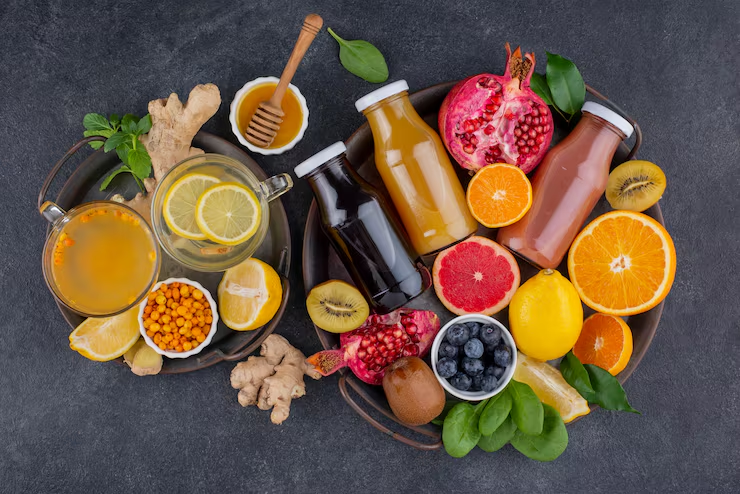
Polyphenols are potent plant compounds that play a vital role in a skin cancer prevention diet. These antioxidants help combat oxidative stress, a condition caused by free radicals that damage skin cells and contribute to premature aging and the development of cancer. Consuming foods rich in polyphenols can protect the skin from UV-induced cellular damage.
Common dietary sources of polyphenols include green tea, dark chocolate, berries, grapes, olives, and various herbs and spices like turmeric and rosemary. These foods not only enhance your meals with flavor and color but also fortify your body’s defense system against harmful environmental elements.
Including a variety of polyphenol-rich foods in your daily meals is a natural and delicious way to support skin health. When paired with other nutrients in a skin cancer prevention diet, polyphenols can significantly reduce the risk of skin damage, boost immunity, and promote overall wellness.
Polyphenol-Rich Foods:
Green Tea: Contains catechins, a powerful class of polyphenols that help protect against skin damage and reduce inflammation.
Dark Chocolate: Look for chocolate with at least 70% cocoa, as it is packed with flavonoids that offer skin-protective benefits.
Berries: Blueberries, blackberries, and raspberries are excellent sources of polyphenols.
Stay Hydrated with Water and Antioxidant-Rich Drinks
Staying hydrated is a crucial yet often overlooked component of a skin cancer prevention diet. Proper hydration helps maintain skin elasticity, reduces dryness, and supports the skin’s natural ability to repair and regenerate. When your skin is well-hydrated, it becomes more resilient against environmental stressors like UV rays.
Water should be your primary source of hydration, but antioxidant-rich beverages like green tea, herbal teas, and even fresh vegetable juices can offer added protection. These drinks provide compounds that combat free radicals, which are responsible for cellular damage and increased cancer risk.
Incorporating hydrating foods such as cucumbers, watermelon, oranges, and leafy greens also contributes to skin moisture and overall wellness. By maintaining consistent hydration and choosing beverages that enhance skin resilience, you’re reinforcing your body’s natural defense system. Combined with nutrient-rich foods, hydration is a simple yet powerful strategy in a comprehensive skin cancer prevention diet.
Hydration Tips: Drink water throughout the day to keep your skin hydrated from the inside out.
Consume green tea or herbal teas like chamomile, which provide antioxidant and anti-inflammatory benefits.
Try fresh vegetable juices made with carrots, cucumbers, and beets for added vitamins and minerals.
Increase Your Fiber Intake
A high-fiber diet plays a vital role in maintaining overall health and is a key component of a skin cancer prevention diet. Fiber supports digestive health by aiding in the elimination of toxins from the body, which can otherwise build up and negatively impact skin cells. By promoting regular bowel movements, fiber helps the body rid itself of harmful substances that might contribute to cellular damage.
Moreover, fiber has anti-inflammatory effects, which are important in reducing the chronic inflammation that may increase the risk of developing various cancers, including skin cancer. It also helps regulate hormone levels, particularly estrogen, which has been linked to certain types of cancer when imbalanced.
You can boost your fiber intake by consuming whole grains, fruits, vegetables, legumes, and nuts. By integrating these foods into your daily meals, you strengthen your immune system, improve skin health, and reinforce your defenses through a smart skin cancer prevention diet.
Fiber-Rich Foods:
Whole Grains: Oats, quinoa, barley, and brown rice are great sources of fiber.
Legumes: Lentils, beans, and chickpeas are high in both fiber and protein.
Fruits and Vegetables: Apples, pears, and leafy greens are high in fiber and essential nutrients.
Limit Processed Foods and Sugary Beverages
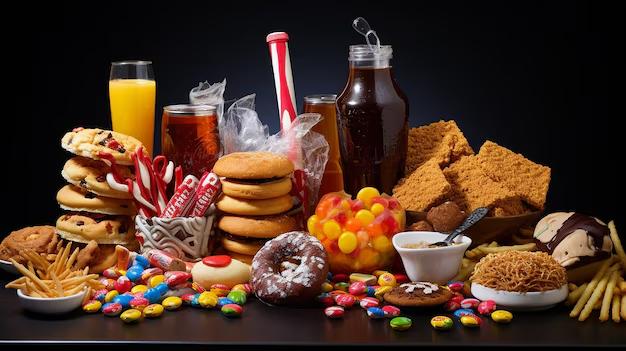
A diet high in processed foods, added sugars, and refined carbohydrates can seriously undermine your efforts to maintain healthy skin. These types of foods trigger inflammation throughout the body, including the skin, which weakens its natural barrier and accelerates cellular damage. Chronic inflammation also impairs the skin’s ability to repair itself, leaving it more vulnerable to environmental stressors.
When your skin’s defenses are compromised, it becomes significantly more susceptible to the harmful effects of UV radiation. Over time, repeated UV damage can lead to mutations in skin cells, increasing the likelihood of developing skin cancer. That’s why reducing inflammatory foods is a key step in any effective skin cancer prevention diet.
Replacing processed foods with whole, nutrient-rich alternatives like fruits, vegetables, whole grains, and healthy fats can support skin health. These anti-inflammatory foods help reinforce your body’s defense system and create a strong foundation for a skin cancer prevention diet.
Foods to Avoid:
Processed meats like bacon, sausages, and hot dogs.
Refined sugars found in sugary drinks, candies, and baked goods.
Trans fats and highly processed snacks, like chips and fried foods.
Additional Skin Cancer Prevention Tips
Along with a healthy diet, here are a few other strategies to protect your skin from cancer:
Wear Sunscreen Daily: Use a broad-spectrum sunscreen with SPF 30 or higher, and reapply every 2 hours when outdoors.
Avoid Sun Exposure During Peak Hours: The sun’s rays are strongest between 10 a.m. and 4 p.m., so try to stay in the shade or indoors during these times.
Get Regular Skin Checks: Regularly check your skin for new moles or changes in existing moles. Schedule annual skin checks with a dermatologist.
Wear Protective Clothing: When outdoors, wear wide-brimmed hats, sunglasses, and long-sleeve clothing to shield your skin from UV rays.
Skin Cancer Prevention Beyond Diet: A Holistic Approach
While a skin cancer prevention diet is essential, it should be part of a holistic approach to skin health. Here’s a quick recap of additional preventive measures to adopt alongside a healthy diet:
Sun Protection: Always wear sunscreen with SPF 30 or higher, and reapply it every 2 hours. Opt for physical sunscreens containing zinc oxide or titanium dioxide, which reflect UV rays, rather than chemical sunscreens.
Seek Shade: Limit your exposure to the sun, especially during peak hours (10 a.m. to 4 p.m.), when UV rays are strongest.
Wear Protective Clothing: Hats, sunglasses, and UV-protective clothing are essential for safeguarding your skin.
Regular Skin Checks: Perform self-exams and visit a dermatologist for routine checks to catch early signs of skin cancer.
Exercise and Stress Management: A healthy lifestyle that includes regular exercise and stress reduction can further boost immune function and skin health.
Conclusion
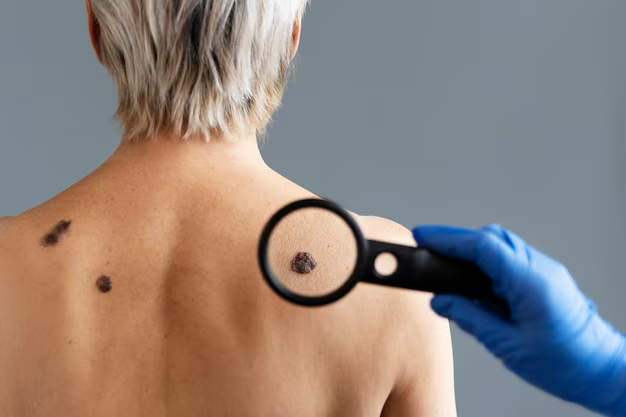
While a healthy diet alone cannot completely prevent skin cancer, it can significantly lower your risk by enhancing your skin’s ability to repair and protect itself from UV damage. By following these top 8 tips for a skin cancer prevention diet—rich in antioxidants, omega-3 fatty acids, fiber, and essential vitamins—you’ll be taking proactive steps toward healthier, more resilient skin.
Remember that prevention is always better than treatment, and combining a skin-friendly diet with sun protection practices will offer you the best defense against skin cancer. By making small but consistent changes to your eating habits, you can improve your overall health and significantly reduce the risk of skin cancer in the long run.
FAQs
Q1. What is a skin cancer prevention diet ?
A skin cancer prevention diet consists of nutrient-rich foods that help protect the skin from UV damage and reduce the risk of skin cancer.
Q2. Which foods are best for a skin cancer prevention diet ?
Foods high in antioxidants, such as berries, leafy greens, nuts, and fatty fish, are ideal for a skin cancer prevention diet.
Q3. Can a skin cancer prevention diet replace sunscreen ?
No, a skin cancer prevention diet complements sun protection but does not replace sunscreen or other sun safety measures.
Q4. How does a skin cancer prevention diet help protect the skin ?
The diet provides vitamins and antioxidants that combat free radicals and support skin repair, reducing UV-related damage.
Q5. Is a skin cancer prevention diet suitable for everyone ?
Yes, a balanced skin cancer prevention diet with whole foods is safe and beneficial for most people aiming to support skin health.
